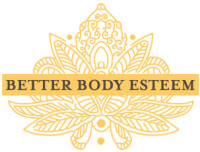
When you’re recovering from an eating disorder, it’s not just about losing (or gaining) weight. You’re also saying goodbye to some very familiar behaviors and habits that have been with you for a long time.
The eating disorder itself can be thought of as a separate entity – author Jenni Schaefer calls hers Ed. By creating this persona, she teaches the reader how to separate the person from the problem and helps others through the transition to life without an eating disorder.
Who would you be without your disordered eating and preoccupation with weight? What are you missing out on, and what are you avoiding? On their path to recovery, I see people bloom into a fuller, richer life. They discover new passions and interests, and have more time available to pursue them because they’re not spending as much time circling about in their minds.
At times people want very much to get better, but they stay on the fence because they’re afraid to let go of the eating disorder. It’s been so familiar and constant, and has been a tool to help them cope with challenges and navigate through life.
Without the eating disorder, they wonder, what will I do with my time? What will I talk about if not food and weight? When you’re so wrapped up in the identity of the eating disorder, it keeps you stuck and can prevent you from fully recovering.
Most people need help with this transition to a new identity – their authentic self. They know what to do but they can’t escape the grip of the eating disorder that at times feels so familiar it’s almost cozy. Of course, at other times it’s incredibly uncomfortable and that creates a painful inner conflict.
For some people, when they first learn they have an eating disorder it’s a huge relief. There’s a name for what they do and how they feel, there are people specially trained to help, and best of all there are other people like them – they’re not the only ones.
Yet overeating or restricting may have also been a social thing you’ve done with other people. You may be part of a whole “foodie” community built around dining out or eating certain foods, or not eating or avoiding certain foods. Now it’s time to find new communities that support your recovery, or new ways of spending time with the important people in your life.
In my sessions, I’ll start out by asking the person to come up with a list of things they’re coping with, such as difficult feelings or situations in their life. Chances are they are turning to food and disordered eating as a solution.
Unhealthy behaviors – binge eating, restricting, purging, or overexercising – may be a way of de-stressing or sedating, numbing out, or stuffing feelings. It could be about anxiety, dread, worry, perfectionism, boredom or loneliness. It’s using food to change a feeling, or cope with a feeling that seems overwhelming.
It’s important to identify these core issues so we can come up with a healthier alternative. If there’s loneliness or grief, we can work through that in therapy. If there’s boredom, we can creatively brainstorm new interests or activities to try.
When the eating disorder becomes an identity and alienates you from others, you’ll come to depend on it for direction and your purpose in life. It becomes the only thing that feels unique about you, but that’s just not true.
The problem with over-identifying with your eating disorder is that it takes you beyond the behaviors. It starts defining who you are as a person. And you’re so much more.
We’ll talk in a future article about how to release the eating disorder identity. In the meantime, check out these positive ways to manage stress.
